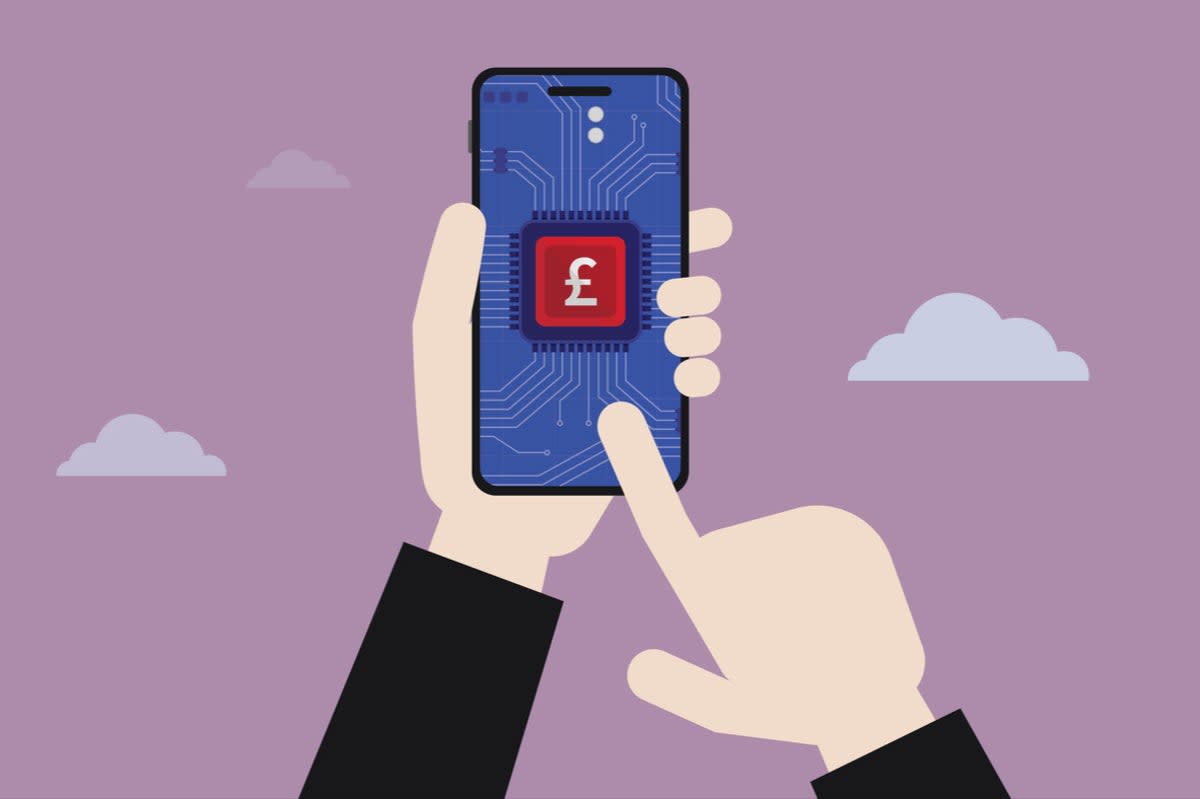Would you take financial advice from a Love Island star?

You might order an outfit that you spotted an influencer wearing in their holiday snaps, or buy the beauty product that they’re constantly praising. You might even borrow decorating inspiration from their home or screenshot a picture of them to show to your hairdresser. But would you follow an influencer for their financial advice – and put that advice into practice?
For Generation Z, the answer seems to be a resounding “yes”. For them, financial influencers (or “finfluencers”) are fast replacing more traditional sources of money guidance. In 2022, a study found that 62 per cent of 18 to 29-year-olds in the UK follow finfluencers on social media, with 74 per cent trusting the advice they provide; 90 per cent of these young people had changed their financial behaviour as a result. Many of these social media accounts are “explaining complex concepts in an easy to understand way that can help boost financial literacy”, says Rhodri Preece, who is the senior head of research at CFA Institute, a professional body for people working in investment. So what’s not to like?
The issue is that not all finfluencers are created equal. While some are providing straightforward tips about budgeting or extolling the virtues of a good pension plan – all through the medium of chatty, easily digestible videos and infographics – others are pushing dubious get-rich-quick schemes onto their followers, or singing the praises of risky cryptocurrencies. Some simply aren’t qualified to dish out tips on financial products. You probably already know the hallmarks of their posts: the ones that explain how “one simple trick” helped them suddenly become a millionaire, or how their passive income allowed them to quit their nine-to-five job to travel the world (and now they want you to do the same!)
Last year, a survey by the Financial Conduct Authority (FCA) found that 58 per cent of 18 to 40-year-olds had been encouraged to buy into high-risk investments as a result of social media hype. But why are these more dubious finfluencers so enticing? Because they are selling a better life – and their followers want in on that.
“Influencing works the same if it’s financial advice or if it’s make-up: you want to feel a sense of belonging,” says Dr Ylva Baeckstrom, senior lecturer in finance at King’s Business School and practising psychotherapist. “You think, ‘this guy is making so much on crypto. If he can do it, I can do it … If only I could make a few bucks on this, then I would be as happy as him.’”
When you go to school, there’s a lack of general education about real world finances
Karishma Galaiya, Thistle Initiatives
Of course, she adds, a finfluencer’s profile may well just be a curated highlights reel. “With financial investing, we tend to boast about our gains and keep quiet about our losses,” she says. “You’re not necessarily going to have an influencer saying ‘oh my God, today I lost £300.” That would be their equivalent of, say, posting a filter-free photo after getting three hours of sleep. “[They’re] just going to talk about [their] successes, because that’s what people want to hear. That’s how you get a following.”
When it comes to managing money, many young adults also lack practical knowledge. “There’s a gap for young people,” says Karishma Galaiya, senior manager for investments at financial services compliance consultancy Thistle Initiatives. “When you go to school, there’s a lack of general education about real world finances. Even if you study A-level economics, it’s all theoretical [so] in your day-to-day life, how do you implement good financial decisions?”
Against this backdrop, it’s hardly a surprise that people are turning to social media to fill this “gap”. Plus, platforms like TikTok and Instagram are well within Gen Z’s comfort zone (whereas, say, phoning up your bank manager to make an appointment is – let’s face it – the sort of task that endlessly gets put off). And they’re also free to access. “In the UK at least, you have to pay to see a financial advisor,” Preece notes. “Does that make sense if you’ve got a relatively small sum to invest? Do you perceive that there’s value in that relationship? Or are you more comfortable, as a young investor, turning to your phone and looking at information for free?”

When Preece co-authored a recent report exploring the rise of finfluencers, about half of the posts he studied were providing broader financial guidance: they were “more of a general educational nature”, as opposed to pushing “a particular course of action to buy or sell something”. “I think that’s a generally positive finding, that these content creators are trying to educate and inform their audience,” he says. However, when looking at the remaining posts, “we did see a number of issues around lack of disclosure – it was not always easy for the person viewing this content to understand whether there were any conflicts of interest … whether the influencer was receiving compensation for making those recommendations, whether it’s advertising.”
Of the financial promotions he looked at, half didn’t bother to make it clear that they were in fact ads. This lack of transparency is a growing problem. Last year, the FCA asked companies to edit or remove 10,000 finance-related promotions, marking a 17 per cent increase from the previous year.
The situation gets murkier still when celebrities and reality stars with huge platforms (and no obvious track record of financial insight beyond, well, being wealthy themselves) try to get in on the finfluencing game. In 2021, Kim Kardashian posted an Instagram story promoting the cryptocurrency token EthereumMax, which rose quickly in value that year then crashed in 2022. She eventually settled charges that she had failed to disclose a $250,000 payment for advertising the currency, paying a $1.26m fine (£1m) to the United States Securities and Exchange Commission.
In some cases the influencers don’t necessarily know the laws or what’s required of them
Rhodri Preece, CFA Institute
Over in the UK, promoting financial products on your social media platform is more complex than, say, uploading an ad for a teeth whitening powder and sticking the obligatory “#ad” in the post’s caption. If they share their praise for a disappointing moisturiser, they might have a few angry fans in their comments section. But the consequences are much bigger when real money is involved. “Influencers need to understand that there are very stringent regulations in this area,” Galaiya says. But the reality is that “in some cases the influencers don’t necessarily know the laws or what’s required of them”, Preece adds. Plus, he notes, social media platforms “make it clear that the responsibility is on the individual posting” – and not the platform – “to know what’s required of them”.
All promotions need to be approved by someone who has been authorised by the FCA; if this doesn’t happen, then the influencer in question might be committing a criminal offence. Earlier this month, the FCA announced that they had charged reality stars from Love Island, Geordie Shore and The Only Way is Essex in relation to promoting an unauthorised foreign exchange scheme. They each face one count of issuing unauthorised communication of financial promotions and are set to appear in court in June.
This marked the first prosecution brought by the FCA against influencers over alleged financial promotion breaches. It’s all part of the regulator’s wider finfluencer crackdown. This year, it also released clarified guidance, stressing that risk warnings need to be displayed clearly throughout video promotions on social media (sticking them in the caption or mentioning them in dialogue would not be enough) or in every picture posted as part of an Instagram carousel. Essentially, they need to make sure that they are giving “clear, fair and not misleading information”, says Galaiya.
It can be “very easy to get sucked in” by the promise of almost-instant riches, Galaiya adds. But, she says, it’s important to “take a step back” and ask yourself a few questions. “Who is the influencer? Can you check out their credentials?”. If they’re claiming to be a financial advisor, they should appear on the Financial Services register. And while some finfluencers might have genuinely useful suggestions, watching a few TikTok videos is no substitute for doing your own research. “Don’t place all of your reliance on that one piece of information,” Preece says. “Check it with other sources and use it as one input into the mosaic of forming a view when you come to make a decision.”

